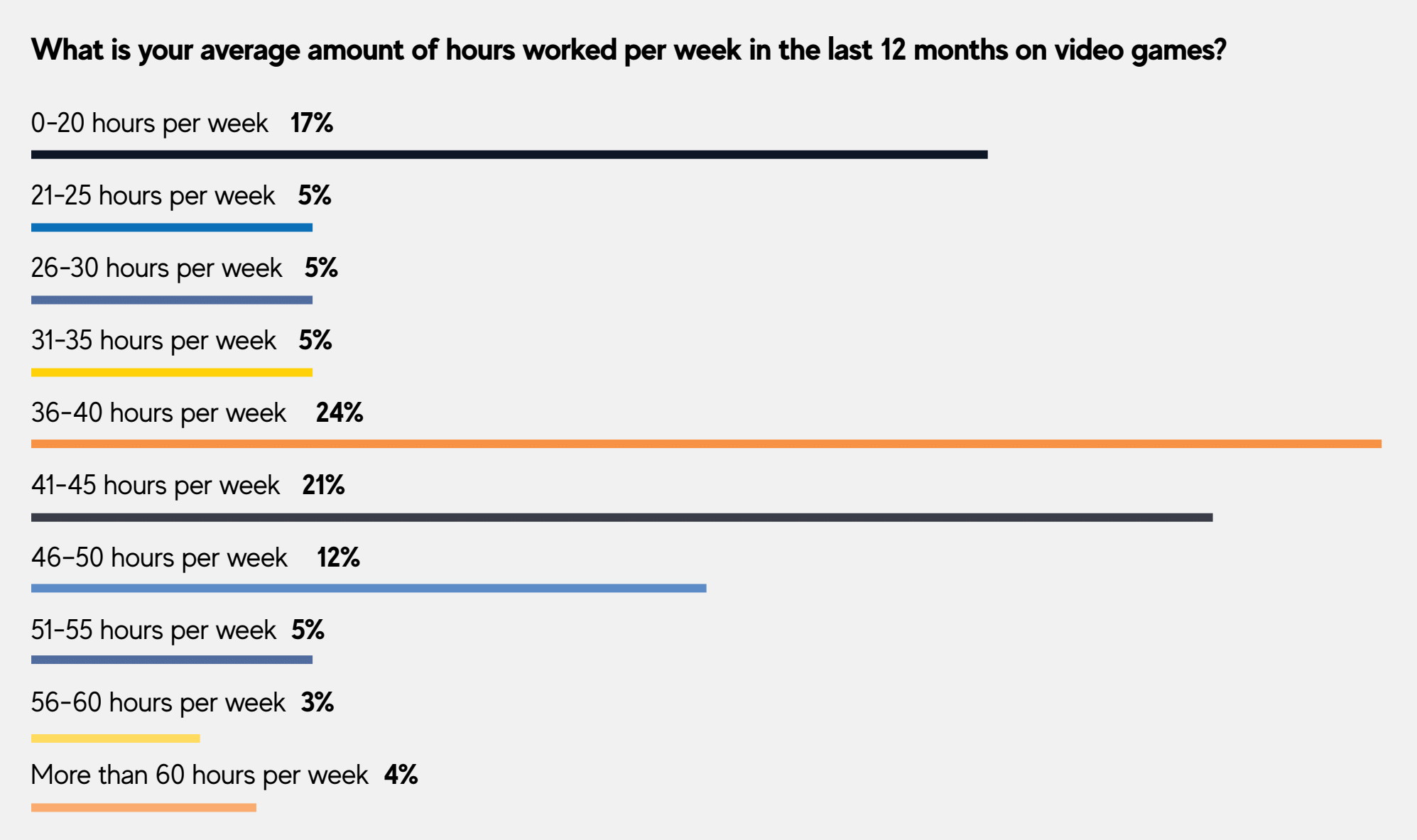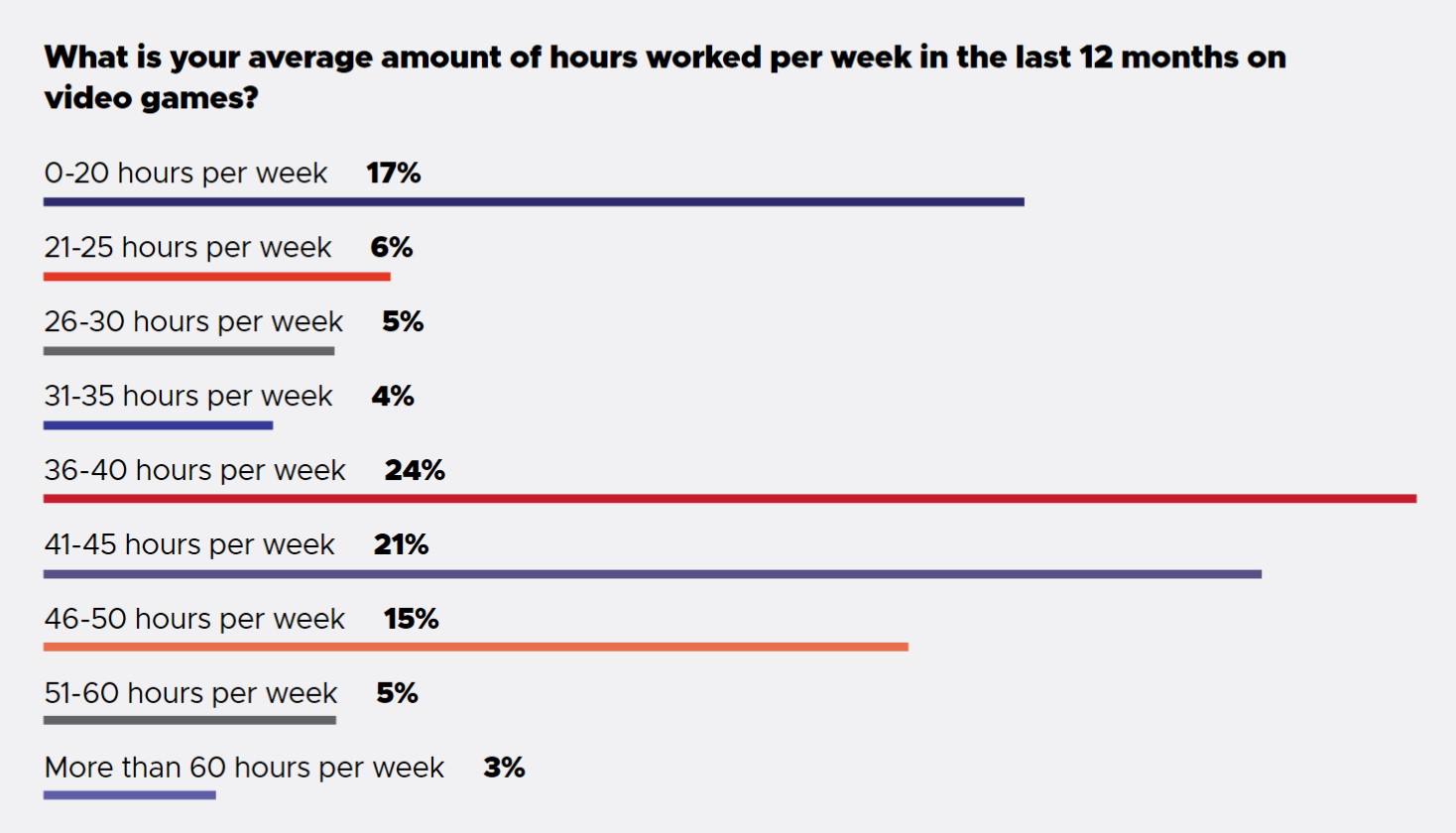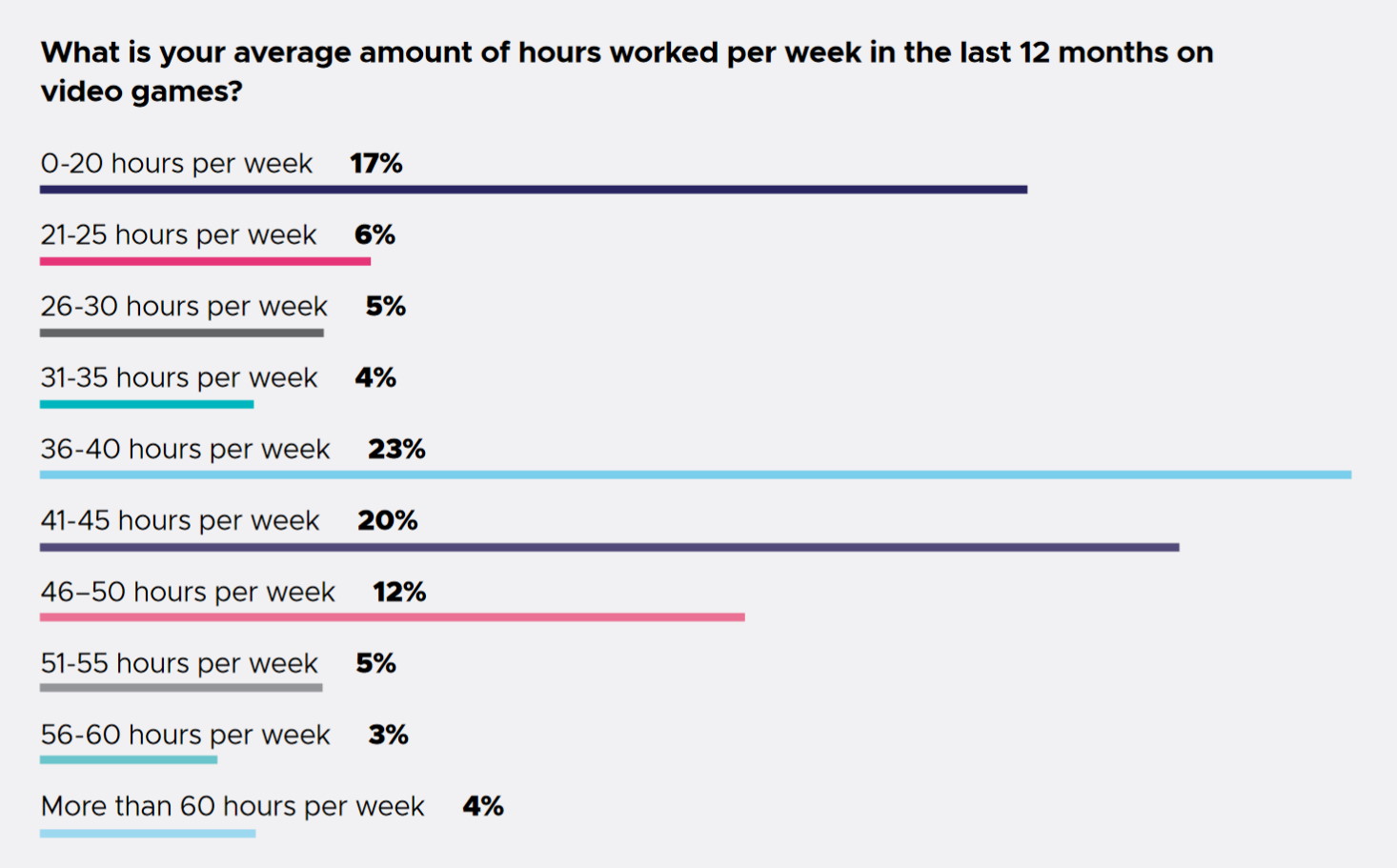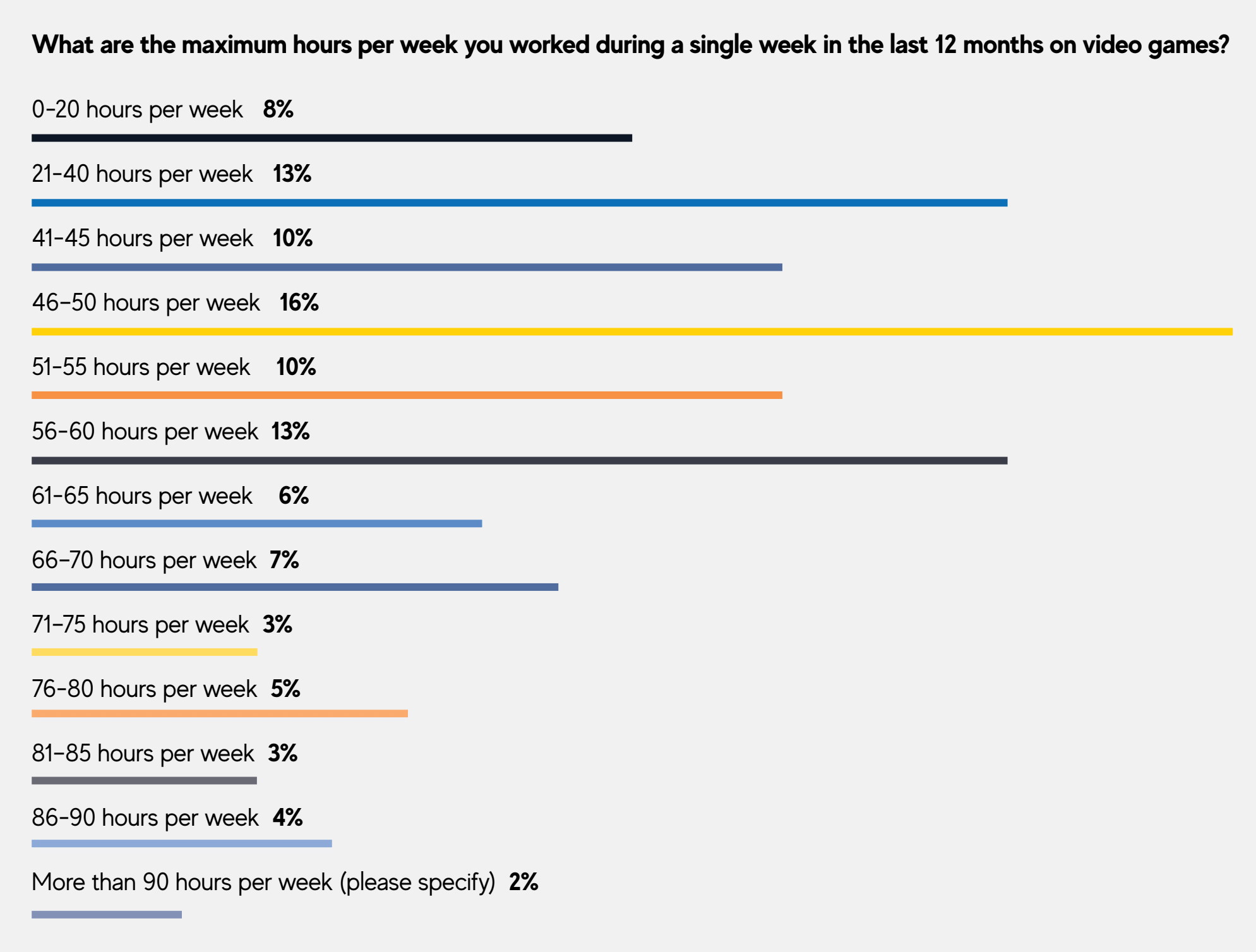Nearly half of game devs work more than 40 hours per week, survey finds
The 2021 State of the Industry survey indicates that long working hours remains an issue for the game industry.

Crunch—the practice of developers working sustained overtime hours in order to meet a deadline—is a major issue in the game industry. The famous "EA Spouse" missive about the disruptive influence of crunch at Electronic Arts dates all the way back to 2004, and little has changed since then except that it's harder to hide now—so big studios don't even bother trying anymore.
The apparent lack of change on that front seems to be borne out by the latest GDC State of the Industry survey of more than 3000 game developers from around the world. Slightly more than half of the respondents—56 percent—worked an average of 40 hours per week or less over the past twelve months, which strictly in terms of time doesn't seem especially onerous. Less encouraging, however, is the fact that one-quarter of developers say they averaged more than 46 hours per week.

As you can see in the graphs below, those numbers are largely unchanged from the past two years:


GDC noted that the result "seems like good news in terms of work-life balance, especially since the past year was dominated by remote work," which can actually make it more difficult to clock out: When your home is also your office, it can be hard to feel like you're not 'always on' and obligated to be available.
A survey of the maximum number of hours worked in a single week over the past year tells a slightly different story: 30 percent of respondents reported working more than 60 hours over at least one week, and 17 percent reported working more than 70 hours.

Nearly three-quarters of respondents who pulled more than 40 hours per week said "self-pressure" was a major factor for doing so, while 14 percent pointed the finger at management pressure and 11 percent said peer pressure was to blame. The "self-pressure" response was the leading cause for working more than 40 hours per week in last year's survey as well, but the number of people who cited it as a major factor was up considerably this year, from 59 percent in 2020 to 73 percent in 2021.
"Also notable is that the second-leading factor, 'I don’t consider the amount of time I worked to be excessive,' garnered 33 percent of responses for this year vs. 40 percent last year," GDC wrote. "Spotting a trend is tricky, as this is possibly just normal fluctuations in game development and cycles vary in rhythm from year to year. Or working from home and pandemic-stress factors may be at play as well."
Keep up to date with the most important stories and the best deals, as picked by the PC Gamer team.
Interestingly, there was also not a whole lot of movement on the topic of unionization: 51 percent of respondents said game industry workers should unionize, compared to 54 percent in 2021, while 14 percent said it should not, also down slightly from the 16 percent who said "no" in 2020.

Andy has been gaming on PCs from the very beginning, starting as a youngster with text adventures and primitive action games on a cassette-based TRS80. From there he graduated to the glory days of Sierra Online adventures and Microprose sims, ran a local BBS, learned how to build PCs, and developed a longstanding love of RPGs, immersive sims, and shooters. He began writing videogame news in 2007 for The Escapist and somehow managed to avoid getting fired until 2014, when he joined the storied ranks of PC Gamer. He covers all aspects of the industry, from new game announcements and patch notes to legal disputes, Twitch beefs, esports, and Henry Cavill. Lots of Henry Cavill.

